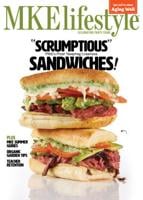WAUKESHA — Waukesha County is suing to reverse a worker’s compensation ruling in favor of a former county nurse who claimed a workplace injury to his back caused him to suffer disability, but who was later seen on video shoveling snow.
The county on Wednesday filed suit against the state Labor and Industry Review Commission and the former employee, Terry Herzog, seeking to have the LIRC ruling that reversed the findings of an administrative law judge overturned, and for Herzog’s worker’s compensation claim to be dismissed.
Herzog’s attorney, Sam Liverseed, declined to comment, citing ongoing litigation, other than to say it is very common to have rulings by an ALJ appealed to the LIRC, and then to circuit courts. He noted the primary respondent is the LIRC, and said his client was a party essentially "in name only." Emails sent to the LIRC and the state Department of Justice Thursday afternoon were not immediately returned.
According to the county’s suit and supporting documents, Herzog, a nurse at a mental hospital, sustained an injury on Sept. 26, 2019, while trying to gain control over a patient who was agitated, seeking the help of others to gain control over a man "slamming the workers into cement block walls like a ‘bucking bronco,’” the LIRC decision said. In the process, Herzog said, he aggravated a 2016 back injury that required surgical intervention and left him with 10% permanent partial disability. A subsequent MRI showed degenerative disc disease in his back that affected his spinal cord. Herzog returned to work on light duty, with no patient contact, but after 120 days, in March 2020, he was told he wasn’t allowed to come back to work; he applied for two other jobs with the county and was not hired for those positions.
A functional capacity evaluation in July 2020 led to restrictions on lifting up to 17.5 pounds from the floor or carrying 20 pounds, occasional overhead reaching, bending and squatting, repetitive kneeling, standing and walking. He was to do no patient transfers or push a wheelchair. He reported it takes him two to three days to mow his lawn because it is on an incline.
The suit said that prior to knowing a surveillance video existed, Herzog reported bending at the waist caused low back problems, his ability to shovel snow is “limited” and sometimes he gets help from neighbors in doing so; he uses a self-propelled snow blower and an ergonomic shovel.
But a Feb. 25, 2022, video taken by an investigator showed Herzog removing snow from his and a neighbor’s driveways, clearing up 6 inches of “wet, heavy snow” with a snow blower that is not self-propelled and without the use of an ergonomic shovel, the suit said.
In March 2023, an administrative law judge denied Herzog’s claims of permanent injury and loss of earning capacity, the suit said, because his testimony was inconsistent with medical records and surveillance video and she believed Herzog was either “exaggerating or not telling the truth.”
But an appeal to the LIRC led to a decision last month that reversed that finding, saying Herzog suffered addition partial disability as a result of the workplace incident that limits his movements and “he cannot do his prior job, and this was a significant, permanent change as a result of the work injury.” The “video also does not prove (Herzog) could do this type of activity as work on a fulltime basis without pain or further injury,” and the video does not disprove the findings of the functioning examination, the LIRC said.
Herzog asked for a finding of a 35% to 40% loss of earning capacity, but the LIRC set that figure at 15%, finding that “(h)e still has the ability to function as a registered nurse, which (a doctor) credibly opined is an in-demand occupation for which most jobs are sedentary or light duty,” the LIRC found The LIRC ordered the county to pay Herzog $40,041, his attorney another $10,860, and over $20,000 in medical expenses.
The suit seeks to have that ruling reversed, arguing “there was no credible and substantial evidence supporting the LIRC’s decision to reverse the findings and order of (the ALJ). ... In addition, the legal conclusion ‘that the findings of the FCE were not discredited by the surveillance video’ must be reversed.”













